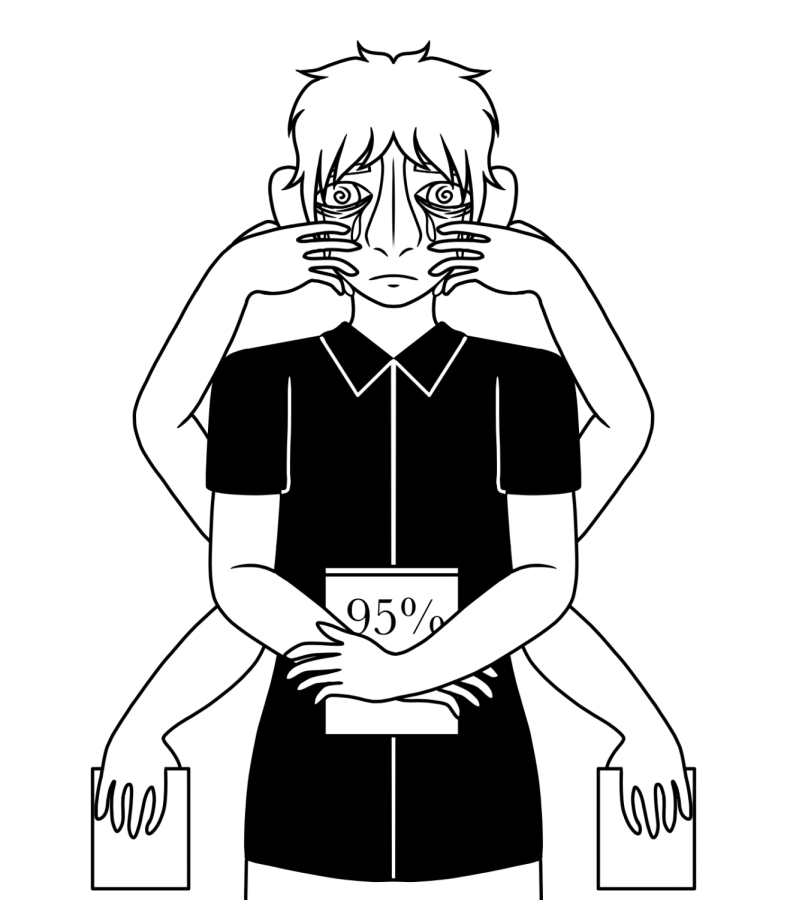Exam Exhaustion
Stressed and depressed: a critique on the current exam policy
Picture this: you stayed up late last night, cramming for your big exam today, but you woke up with a pounding headache. You go to school hoping the pain will subside, but it only worsens.
As you take your exam, you feel sickness creeping in, and the headache impedes your ability to focus. Exhausted, you slog through the exam, too ill to properly think about each problem. You fail.
You didn’t do anything wrong – you studied hard, showed up on time and tried your best – but you still failed. Isn’t it so frustrating that your grade dropped because of a situation you couldn’t control?
Exams are a wildly inaccurate illustration of a student’s academic prowess. There are many external factors that can influence your mindset on exam day: a death in the family, an illness or a study session into the wee hours of the
morning – the list goes on and on. The broader context in which you take your exam is completely out of your control.
Plus, exams don’t account for people’s different skill sets and learning disabilities. Some students fly through classwork but struggle with tests, while other students can do really well on a test with a minimal understanding of the subject. It all boils down to whether students are good test takers or not.
Classwork, discussions, projects and experiments are much more representative of a student’s understanding of a subject. A year’s worth of grades is reflective of you as a student, whereas an exam is only reflective of you in that moment.
If you can’t control the context in which you are taking the exam and the exam is only two hours out of your many months of being a student, then why should it determine so much of your grade?
As most St. George’s students know, exams are 20% of your grade in the Upper School. That might not sound like much until you actually do the math. In order to keep the grade you have in that class, you need to score that exact grade on your final exam. For example, if you have a 95% in a class, you would need to get a 95% on your exam to keep a 95% in the class.
Isn’t that frustrating? Though you can master 95% of a unit, it’s so hard to completely master 95% of all of your coursework and show that on the exam while not making any careless mistakes. You work hard all semester just for your grade to inevitably drop after taking your exams.
But St. George’s is home to high achievers who refuse to let their grades drop over one week of exams. As a result, they will pull hours-long study sessions, take minimal breaks and stress them- selves out attempting to keep their
grades high.
Though these tactics may increase students’ chances of achieving their desired exam grades, they are wholly detrimental to students’ mental health.
For example, the Mayo Clinic lists the effects of high stress on your body and your behavior, including headaches, fatigue, sleep problems, disordered eating, social withdrawal and substance abuse. Plus, the Sleep Foundation states
that all-nighters “can harm your thinking and cognition, your mood and emotions, and your physical well-being.”
In short, students sacrifice their mental and physical health to achieve unhealthy, unrealistic expectations for their exam grades. Exams are a singular two-hour instance of a student instead of a year-long portfolio, and the context in which students take their exams is completely out of their control. So, why should they have such a large impact on a student’s final grade?


